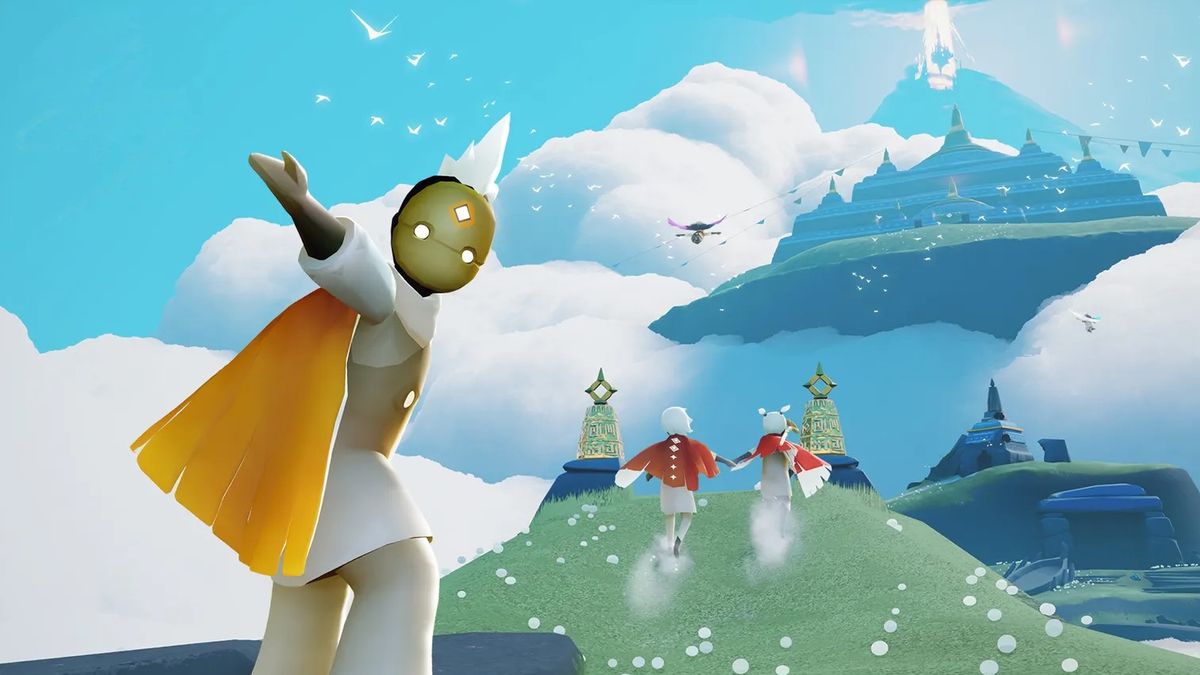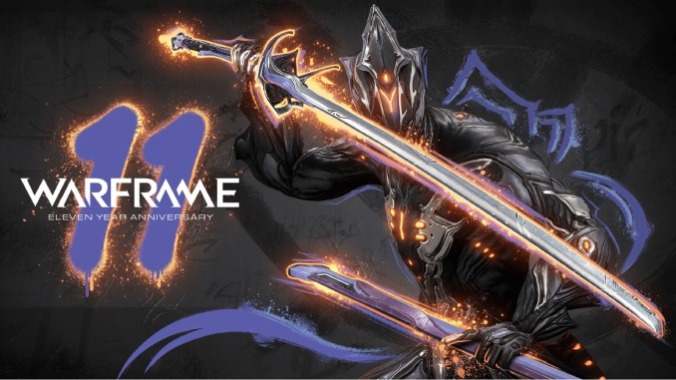
Loading Screen: CEO Unilaterally Closes Indie Studio - Blames Staff and Press
In one day, three years of work was wiped out for developers at Possibility Space, an indie team whose CEO seems to have decided that an unpublished leak to the press was so damaging that the team's game could not continue.
In one day, three years of work was wiped out for developers at Possibility Space, an indie team whose CEO seems to have decided that an unpublished leak to the press was so damaging that the team's game could not continue.
15th: Kithack Model Club (Original Kerbal Space Program creator's new game)
16th: Harold Halibut, Kill it With Fire 2, Biogun, Life Eater
17th: Kingsgrave, Reigns Beyond
18th: No Rest for the Wicked, Age of Water, FFXVI: The Rising Tide, Sker Ritual, Artificer's Tower
CEO Abruptly Closes Indie Studio, Blames Games Press
It's not often we get to watch someone completely destroy their entire industry reputation in one day - with accusations that it's the fault of their staff and the games press too, while scrubbing the presence of everything connected to them from the internet.
Jeff Strain is the founder of Prytania Media - a company which itself set up developers Possibility Space in 2021, Crop Circle Games in 2022, and in 2023 purchased Fang and Claw (a western AAA team acquired following a huge funding round) and Dawon (an Indian mobile team).
Before those companies, Strain worked at Blizzard, then co-founded ArenaNet (Guild Wars) and Undead Labs (State of Decay) - so he's thoroughly a game industry veteran.
Possibility Space in particular had a wealth of talent involved, from folks who worked at Valve/Campo Santo, Insomniac and plenty of staff from ArenaNet, Undead Labs and Blizzard.
The idea was to have the team be as remote as possible, treated as fairly as possible and to last as long as possible.
And those people have now come on board and are strong counselors and offer strong guidance for how we continue to build the kind of systemic culture we need to build to make sure that as we hire people over the next five, 10 years, that we build a culture that would survive...me. You don’t want that all going away the moment certain key people walk out the door.
Prior to this weekend, he was mainly known for those latter studios and their output, suggestions from reporting that his sale of Undead Labs left the studio confused on his principles of independence and an open letter he penned in 2021 to react to the allegations of a toxic culture at Activision Blizzard - calling for widespread unionisation to protect developers from management actions.
Let's keep that last part in mind.
Crop Circle Games closed in March, with staff at Prytania reporting layoffs and implicit payoffs for not taking legal action with the NLRB.
At the time, ex CEO Annie Strain (wife of Strain, also Games Industry Veteran/Founder of ArenaNet) posted a message (now deleted alongside the company website) that detailed the rationale, in that she had received information that Kotaku Journalist Ethan Gach was writing about the state of the studio and it's finances.
She then claimed that she couldn't know whether Gach was about to write about her (then unknown) health struggles with MS, and so wanted to clear the air by publicly disclosing this as well as that the game being worked on by Crop Circle had no funding interest and was "just fundamentally out of touch with emerging player tastes and not aligned with the portfolio strategies of any publishers or investors."
So the studio being furloughed, then closed was in theory something that made sense, though the unprompted PR move of all of this did raise some eyebrows.
Especially since while this was going on, they then bought two more studios.
As did comments Strain herself had made in 2023.
“[L]ayoffs are a result of bad management and poor strategic management and bad decision making.”
— Kai (@SomeGuyNamedKai) April 12, 2024
- Annie Delisi Strain, 2023. pic.twitter.com/17wyHIIIVT
As of this weekend, Possibility Space is entirely closed too.
Staff were told suddenly on Friday, with an email going out while some were in the middle of meetings.
As of right now, no severance is being paid and the teams in the US are expected to keep working until Friday the 19th although it's unclear on what, because their game is being cancelled.
Staff at Possibility Space received an email from Strain on Friday 12th April.
This email revealed that he had also received questions from Kotaku Journalist Ethan Gach.
Questions which were primarily concerned with Prytania Media and the state of the closure of Crop Circle games, but which also detailed a connection to Possibility Strain - as part of the same upcoming article as before.
Nicole Carpenter of Polygon had the scoop, acquiring this email message to staff.
... Much of [Gach's unpublished article] was expected but I was also stunned to see non-public information about Project Vonnegut, disclosure of our publishing partner with details of our business and financial relationship, and details of internal P&L discussions and confidential all-company meetings. Mr. Gach specifically credits current employees as the source of his information. ...
Now no one at the management level likes leaks.
Especially when they showcase actual numbers, which genuinely could be considered business secrets that could harm the company, providing they weren't in a good state under Prytania's leadership.
And no publisher likes being forced into the open outside their marketing plans, but it's rarely the end of the world.
Project Vonnegut is actually a name we've seen before, as a project name from Xbox Games Publishing - though considering the name, it's not guaranteed to be the same project.
So how did this result in the closure of the studio and cancellation of the game?
There's a part of the email that is very specific in it's wording, that we should look at closely:
Given the company’s own strict confidentiality and notification obligations, I immediately got on a plane for in-person meetings with our publishing partner to discuss the impact on the project.
During that discussion our partner expressed low confidence they would be willing to invest the additional resources needed to complete the game, so we mutually agreed to cancel Vonnegut.
Several things immediately jump out here.
First, let's take it as given that Jeff Strain is being honest in his representation of events, that these things happened.
It is buck wild that an in person meeting was needed to discuss this unpublished leak rather than a zoom call or even just emails that could be tracked.
But then let's take a look at the two sentences themselves.
The first is about the reaction to the leak from Strain, claiming that a meeting was needed in order to discuss a notification of confidentiality being breached.
The second is about the low confidence in the additional resources needed to fund completion of the game, and thus it's cancellation.
(puts on Columbo raincoat, gestures with stogie)
Mr Strain... are those two sentences actually connected?
The first is you calling a meeting with your publisher related to an information breach where private information on funding from a publisher may go out to the public in the future.
The second is about whether that publisher has the confidence in the project to invest more money in developing it, which they didn't - so together you agreed to cancel the project.
Because it seems kind of like you're conflating two events in your write up.
You never actually say that the game's publishing fund is being pulled because of the leak.
The meeting happened because of the leak. But where does additional funding come into it? Barring some drastic security reorganisation being asked for, the leak shouldn't impact the planned and paid for costs of ongoing development, right?
Which then leads to overarching questions about all this.
If the profit and loss sheet (and presumably projected returns) for the game were positive or even neutral, would they be being reported on in the first place?
Having invested in two further studios only last year, and with a project at Crop Circle (that apparently had no place in the industry).
The final part of the email is effectively the end of Possibility Space (and seemingly Prytania as a whole) as Strain confirms that he's stepping away from games.
As of today I am stepping away from the game industry to focus on my family and care for Annie. I wish all of you the best as you navigate this complex industry and the challenges and opportunities ahead.
This seems to have been followed through on - as the websites for Possibility Space have vanished, as has their LinkedIn page.
Effectively, Strain has gone silent.
Staff have been told they’ll be contacted by a legal team handling the closure - and that they can keep their development kits (though with a reminder that they are subject to confidentiality agreements)
All while staff now pick up the pieces and try to work out what even happened with the last three years of their lives - while for everyone outside the company, we wait for the publication of an article that was so worrying it apparently killed two studios.
Weekend Reading
The launch of Sky: Children of the Light, from Journey developer thatgamecompany, has Lauren Morton of PCGamer wondering about the MMO space - as the traditional games all gear up for redefining expansions in 2024, is this also the time for non-traditional MMOs to stake their claim in the space?

Sky is all about barefoot surfing down a grassy meadow on your way to uncover a secret new area, and becoming dear friends with a total stranger along the way. Even without a public chat system, Sky manages to capture the same experience as some of the best MMO encounters:
Speaking of MMOs though, we're approaching 11 Years of Warframe - which for a game that teetered on the brink of irrelevancy at launch is no mean feat. For Paste Magazine, Matthew Reyes delves into the history of the game, the ways in which Digital Extremes have kept the game alive and thriving; and how all of it is from listening to the community and doubling down on what works.

People were absolutely playing Warframe, it’s free after all, but it really wasn’t close to profitability until the game became available on Steam. The boost in player count resulted in being able to keep the studio viable for a future, and was able to become a PS4 launch title in November 2013.
After gaining more traction over time, Digital Extremes was able to start transforming this game with subsequent updates to change things for the better. Through sheer determination, Digital Extremes took Warframe from the little game that almost could to a game that absolutely did.
And finally, one to watch for those of you not on the Fallout hype train - who needs real video games when you can just fake them?
Super Eyepatch Wolf has been digging into fake games, but the fun kind.
Demakes, Fangames, weird creative exercises in development - and delving into why these projects even exist, and what drives people to keep making them.





